This one decision can change everything about how your retirement feels.

There’s something wildly liberating about the idea of packing up your life and hitting the open road in an RV. No set schedule, no fixed address—just the promise of adventure and freedom at every turn. For many retirees, it sounds like the ultimate dream. But for others, that dream quickly turns into a maintenance-heavy, relationship-testing, money-draining reality that wears thin faster than expected. The romance of RV life is real, but it can also be deceptive if you’re not asking the right questions up front.
RV travel isn’t for everyone, and the difference between a dream trip and a nightmare often comes down to preparation and self-awareness. It’s not just about where you’ll go or what kind of RV you’ll buy. It’s about how you handle space, solitude, planning, mess, money, and your own mood when things go sideways. If you’ve ever fantasized about life on the road—or even just taking a few extended RV trips each year—these questions will help you figure out if the lifestyle actually fits you. Because once you’re out there, turning back isn’t always as simple as it seems.
1. Can you live in a small space without feeling trapped?
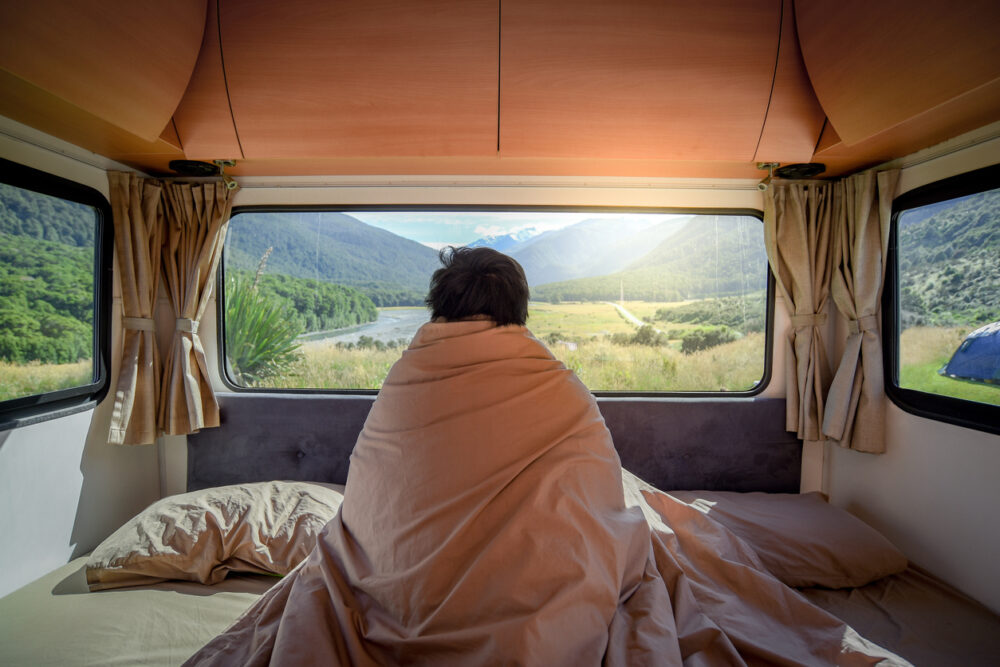
Living in an RV isn’t just about limited space—it’s about sharing that limited space with everything you own and possibly another person 24/7. There’s no “other room” to escape to when you need a breather. The walls are thin, the quarters are tight, and every square inch matters. If you’ve ever found hotel rooms claustrophobic or hated sharing a bathroom on vacation, that could be a red flag. It’s not that you can’t adjust, but the adjustment requires a mindset shift that not everyone finds easy.
There’s beauty in simplicity and a deep satisfaction in trimming the excess from your life. But that doesn’t mean you won’t miss spreading out your stuff or having personal space when tensions rise. It helps to test the waters first—try a short RV trip and see how it feels before committing to longer stints. If you find yourself breathing easier the minute you step outside, RV life might be more of a getaway than a long-term lifestyle for you, according to Martha Anderson of Lonely Planet.
2. Are you okay with constant decision-making?

RV travel puts you in the driver’s seat—literally and figuratively, as mentioned by Katrina Hunt at Visit California. Every day brings new decisions. Where will you park tonight? How much fuel do you need? Is the weather going to turn nasty? Do you need to adjust your route? It’s a stream of choices that never really stops. For some, that kind of dynamic lifestyle feels exciting. But for others, it can quickly become exhausting and mentally draining.
If you’re the kind of person who likes routine and predictability, RV living might feel overwhelming. Even small tasks—like finding a good dump station or choosing between a free parking lot or a paid campground—can wear on you when you’re tired or hungry. Over time, the daily logistics can start to feel like a job. Before jumping in, think about how you respond to constant change and how much planning you’re willing to do every day. It’s not always fun and spontaneous. Sometimes, it’s just a lot of work.
3. How well do you handle mechanical problems?
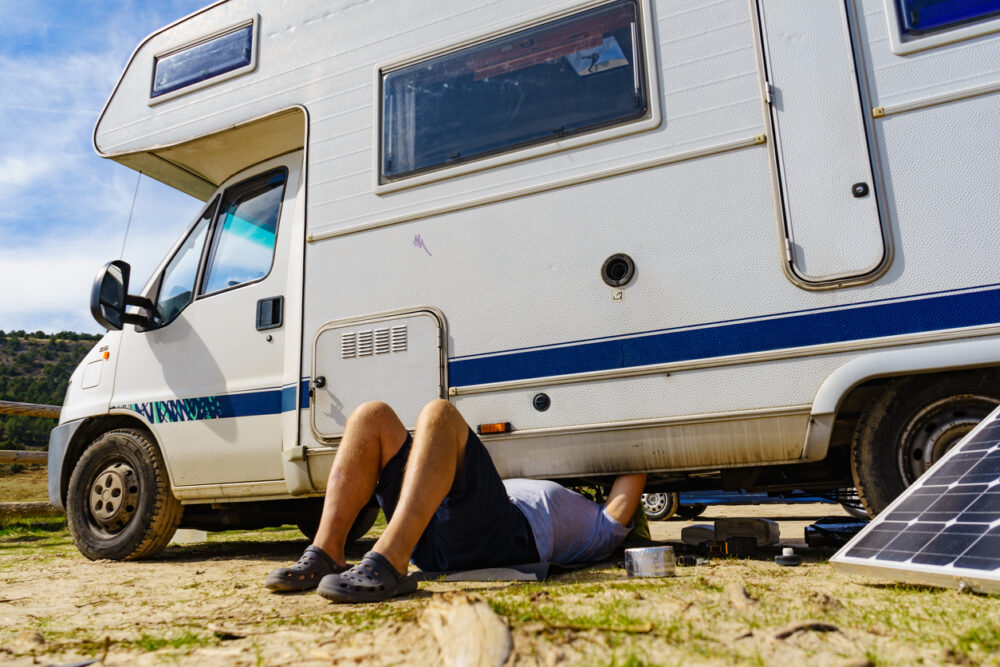
RV breakdowns aren’t a possibility—they’re a certainty. Eventually, something will leak, something won’t start, and some system will stop working right when you need it. If you’re handy, that might sound like a fun challenge. But if you tend to freeze up or panic when things go wrong, that’s going to create a lot of stress. Waiting hours for roadside help on a hot day isn’t glamorous—it’s just frustrating.
You don’t need to be a full-blown mechanic, but it helps to be curious and willing to learn. At the very least, you should know how to troubleshoot common issues and use basic tools, authors at Grateful Glampers reported. There’s a big difference between calling someone to fix your home AC and trying to figure out why your RV won’t hold a charge in the middle of nowhere. Think hard about your comfort level with repairs, because they’ll happen—and they won’t always be cheap or easy.
4. Do you have a steady source of income or savings?

RV life can be cheaper than traditional living—but that depends on how you do it. If you’re boondocking and living simply, sure, you might spend less. But between fuel, maintenance, park fees, and unexpected repairs, costs can add up fast. There’s a common misconception that it’s an inexpensive way to live, and while that can be true, it’s not a guarantee. If your budget is already tight, an RV lifestyle might actually increase your expenses.
It helps to have either a reliable pension, Social Security cushion, or remote income. Even better if you’ve got savings set aside for emergencies. The last thing you want is to be stranded with a dead engine and no money to fix it. Financial stress is amplified on the road because you don’t have the same safety net or fallback options you would in a stationary home. Before you hit the gas, make sure you’ve got a financial plan that accounts for surprises.
5. Are you comfortable being away from family and friends?

One of the big emotional trade-offs of RV living is being physically distant from your social circle. Birthdays, Sunday dinners, impromptu visits—all of that becomes harder when you’re constantly on the move. For some, that freedom is worth it. For others, the loneliness creeps in slowly and becomes a heavy weight. Zoom calls and texts help, but they’re not a replacement for hugs or real conversations over coffee.
Some RVers find community on the road through clubs, forums, or campground friendships. But those connections are often short-lived unless you’re intentional about maintaining them. If you’re someone who needs regular face-to-face connection with loved ones, long-term RV living might leave you feeling isolated. You’ll need to find new ways to nurture relationships and create a sense of belonging, even when your home keeps changing zip codes.
6. Can you deal with limited internet access?

Wi-Fi might be everywhere—until you actually need it. RV travel often takes you into remote areas, which can be beautiful and peaceful… but also dead zones for cellular service. If you work remotely or just want to stream a movie on a rainy night, unreliable internet can be a dealbreaker. Even when you’re in a campground, shared Wi-Fi can be painfully slow or non-existent.
There are solutions—hotspots, boosters, satellite internet—but they come with extra costs and setup headaches. You’ll need to think ahead, plan for backups, and manage your expectations. If being online is critical to your lifestyle, you may find yourself limited in where you can go and how long you can stay off the grid. Before you fully commit to RV life, ask yourself if you’d be okay without being connected all the time. Because in many places, you simply won’t be.
7. How well do you communicate under stress?

RV life isn’t just about beautiful landscapes and scenic drives. It’s about managing tight turns, breakdowns, GPS mistakes, and cooking in a tiny kitchen without snapping at each other. If you’re traveling with a partner, your communication skills are going to get tested hard and often. Little irritations can snowball quickly when there’s no room to breathe or walk away.
This lifestyle demands patience, honesty, and a willingness to resolve issues without letting them simmer. If either of you has a tendency to shut down, explode, or hold grudges, those habits will get magnified on the road. RV living works best for couples who already have strong communication and know how to navigate disagreements with grace. If that’s not your strong suit yet, it might be worth working on before locking yourselves into a rolling box together for months.
8. Are you flexible when plans fall apart?

RV travel will test your ability to pivot. Parks fill up unexpectedly. Roads close. Weather forces last-minute changes. That scenic route you planned might become a construction nightmare. Flexibility isn’t just helpful—it’s essential. If you’re someone who gets thrown off when plans go sideways, RV life could feel like one big headache.
It’s not about being carefree; it’s about adapting without unraveling. You’ll need to get comfortable with rearranging your days and finding joy in the detours. Some of the best travel memories come from moments when nothing went as expected—but that only happens when you can roll with the punches. If your stress level skyrockets every time a plan changes, take that as a sign to re-evaluate how you’d really handle the unpredictability of life on the road.
9. Do you enjoy problem-solving and planning?
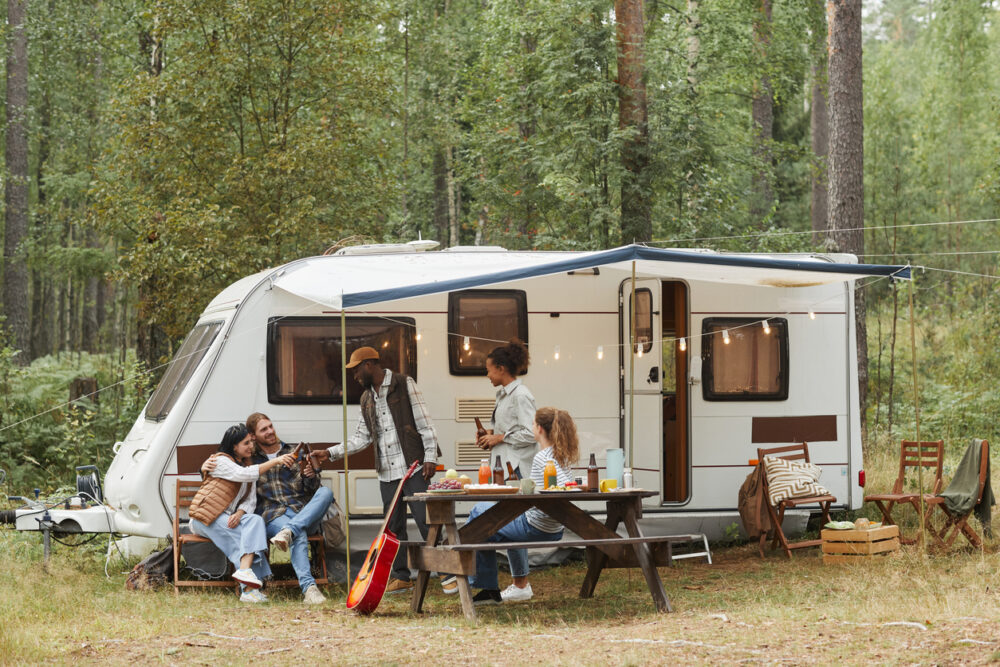
Behind the scenes of a dreamy RV trip is a lot of logistics. You’re constantly researching routes, checking weather, finding parking, booking sites, monitoring your battery levels, and making sure you’ve got enough water. It can be thrilling if you enjoy that sort of thing, but for some people, it quickly turns into a grind. This isn’t a “set it and forget it” kind of lifestyle.
RV travel is smoother when at least one person in the rig loves to plan. It’s not always spontaneous—there’s real satisfaction in knowing where you’ll sleep, how long the drive will take, and what you’ll eat. If you like puzzles, solving daily challenges, and checking boxes, this might feel natural. But if you hate managing details or feel drained by logistics, RV life might wear you down instead of lifting you up.
10. Are you okay with dirt, bugs, and a little discomfort?
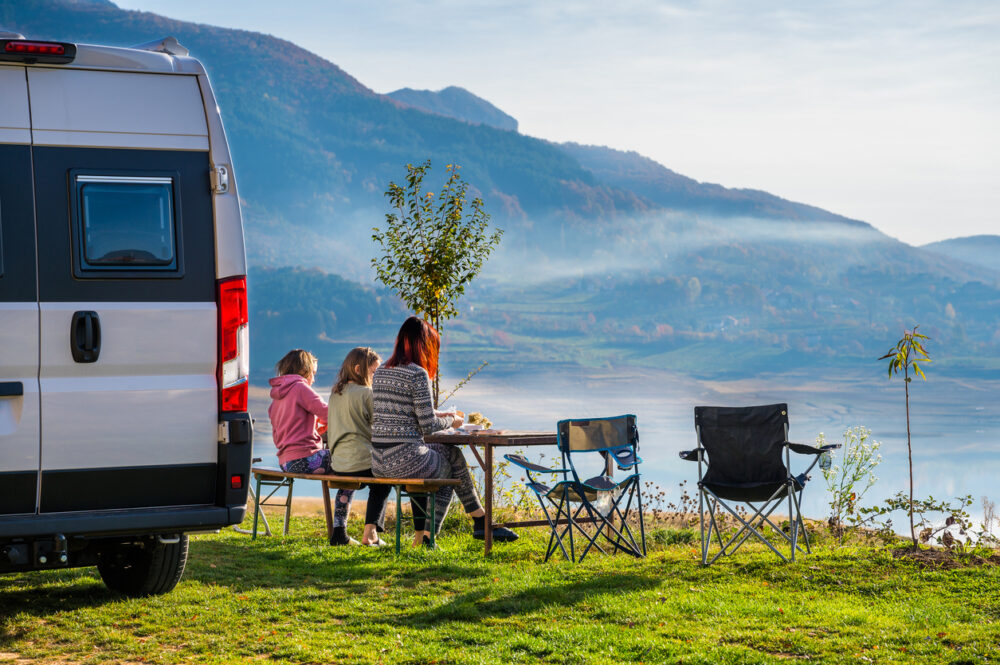
RV living means embracing the elements—dust, rain, bugs, heat, cold, and all the lovely surprises that come with outdoor life. Your floor will get dirty faster than you thought possible. You’ll hear critters on your roof at night. The temperature might swing wildly, and sometimes your air conditioner or heater won’t keep up. This is all part of the package.
It’s not about being tough or rugged. It’s about accepting that a bit of discomfort comes with the freedom of the road. If you need a pristine environment and high-end comforts to feel happy, RV living could frustrate you. But if you see dirt as part of the adventure and are fine with cleaning a little more often, then the trade-offs might feel totally worth it. Just be honest with yourself—some people love “roughing it,” and some just think they do.
11. Do you enjoy driving and being on the move?
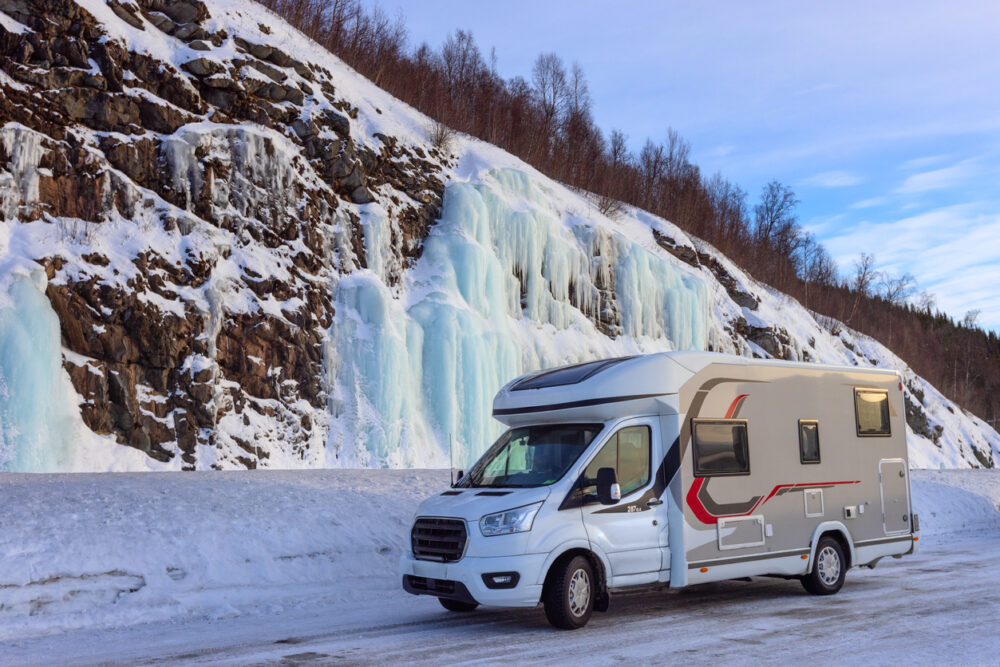
You’ll spend a lot of time behind the wheel. Even if you plan to stay put in places for weeks, the travel days in between can be long and tiring. Driving an RV isn’t the same as cruising in a sedan—it’s heavier, slower, and more demanding. Tight turns, narrow roads, and wind gusts require focus and confidence. If you find driving stressful, the road might feel more like a chore than a joy.
There’s also the physical side—hours of sitting, parking challenges, and navigating unfamiliar areas. Some people love the rhythm of the road and find driving meditative. Others can’t wait to be done as soon as they start. Think honestly about how you feel behind the wheel, because driving is a core part of RV life. If you don’t enjoy it, you may want to rethink how often you’ll move or who will be doing most of the driving.
12. Can you respect quiet hours and campground etiquette?
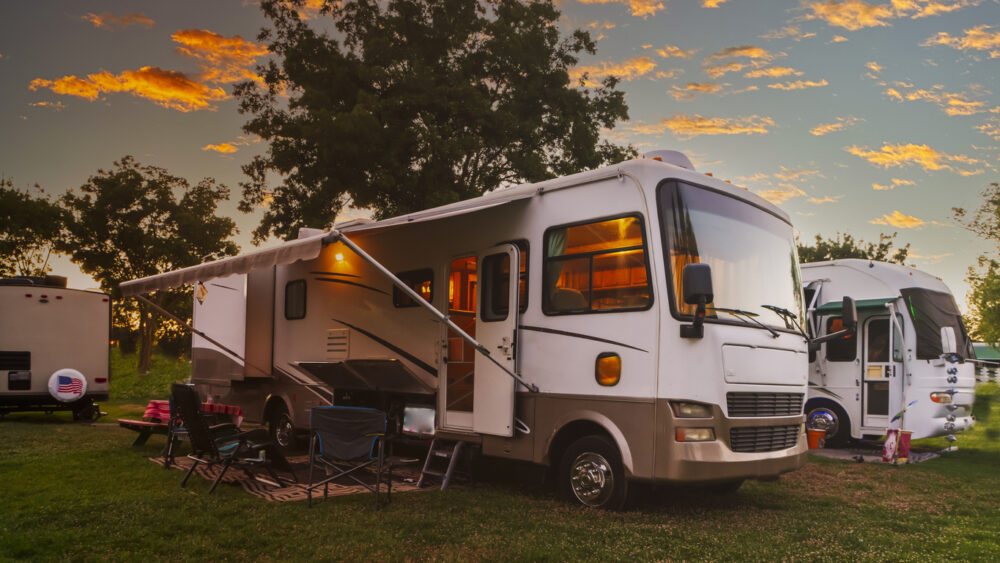
Living in an RV means you’ll be part of a community, even if only temporarily. Campgrounds and RV parks have rules—quiet hours, leash laws, generator use, and so on. These aren’t just suggestions; they’re essential for keeping the peace. If you like doing your own thing regardless of who’s around, this could lead to tension with your neighbors.
The truth is, you’ll have to be mindful of noise, space, and behavior. Music, kids, dogs, cooking smells—it all travels fast when you’re parked a few feet from someone else’s home. Respecting those unspoken rules goes a long way in creating a good experience for yourself and others. If you’re used to complete autonomy or hate being told what to do, campground life might feel stifling. But if you value courtesy and can live by a few shared standards, you’ll fit in just fine.
13. Are you chasing freedom—or running from something?
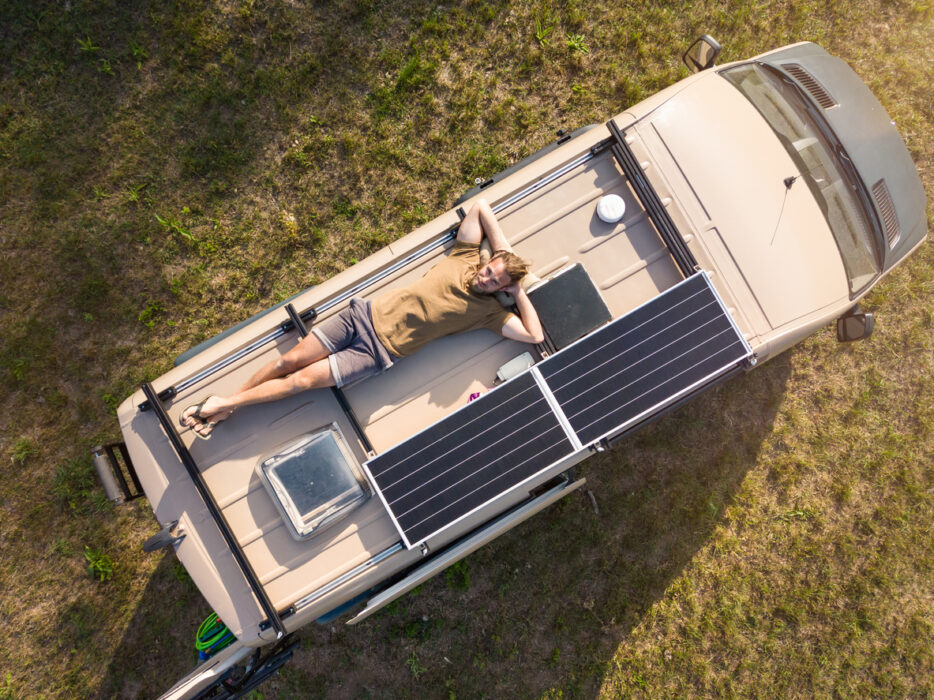
It’s easy to romanticize RV travel as the ultimate escape. And sometimes, that’s exactly what it is. But if you’re diving in because you’re bored, burned out, or trying to outrun something in your life, RV living won’t magically fix it. The road has a funny way of amplifying whatever you’re carrying. If you’re lonely, that loneliness can deepen. If you’re overwhelmed, the road won’t feel any lighter.
That doesn’t mean it’s a bad choice. But it’s worth checking your motives. Are you truly craving adventure—or just hoping a change of scenery will solve what’s bothering you? If it’s the former, RV life might be incredible. If it’s the latter, you might need to deal with what’s underneath first. Because wherever you go, there you are—and an RV, no matter how fast it moves, won’t change that.
